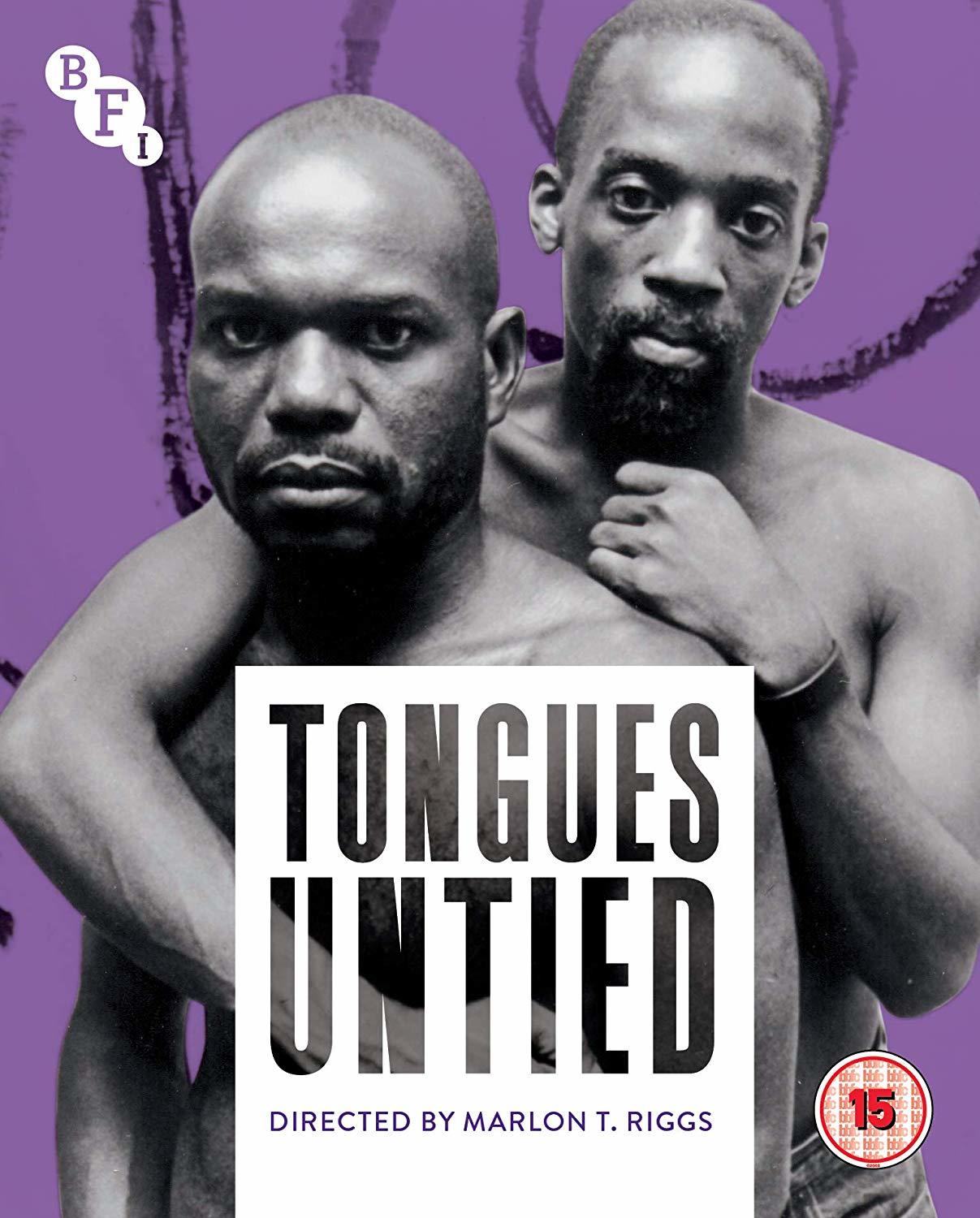Tongues Untied (1989)

| |
| Directed by | Marlon Riggs |
|---|---|
| Running time | 55 min |
| Core concepts this week |
witnessing narrating/experiencing narrative empathy defensive autobiographical position masculinity femininity |
| View on Vimeo | |
Film background and summary
Tongues Untied was directed by Marlon Riggs, a poet, filmmaker, and activist. Riggs directed several documentaries that engage with race, sexuality, HIV/AIDS, and cultural representations of identity, including Color Adjustment, Ethnic Notions, and Black Is…Black Ain’t. Tongues Untied primarily addresses Riggs’ perspective on intersectionality and Black gay identity. The film includes several monologues and poems performed by Riggs, and features poetry and monologues performed by Essex Hemphill. It includes critiques of Black religious leaders’ rejection of homosexuality, as well as the racism of white gay male culture. At the end of the film, Riggs also addresses HIV/AIDS, which had, by the time of the film’s production, claimed the lives of many of Riggs’ contemporaries. Riggs died of complications from AIDS in 1994 at age 37. Hemphill died of complications from AIDS in 1995 at age 38.
Tongues Untied is perhaps Riggs’ best-known film. It was broadcast on PBS, and its broadcast sparked controversy over the National Endowment of the Arts and public funding for art like Riggs’ work, which some conservative politicians referred to as pornography. In his bid to run against George H. W. Bush in 1992, Pat Buchanan’s presidential campaign created a campaign ad that used altered footage from Tongues Untied to critique Bush’s alleged support “pornographic and blasphemous art.” Riggs wrote a rebuttal to the campaign ad, which was published in The New York Times. In it, he critiques Buchanan’s political strategy as “a perversion of a different order now on the rise in politics: the ruthless exploitation of race and sexuality to win high public office.” Much has been written about Riggs’ work over the last 30 years, and his films continue to appear in university syllabi, museums, film series, etc. New York Times cultural critic Wesley Morris wrote an essay on Tongues Untied that may be helpful to read or to share with students. Morris praises Riggs’ work for “invest[ing] a television-video format with alarming complexity: montages and interjections, ghostly palimpsests and these haunting rhythmic visual chants.”
Content warnings
Tongues Untied contains brief nudity and racist and homophobic slurs. “Black Macho Revisited: Reflections of A Snap! Queen” also makes frequent use of the term “Negro Faggotry” in its central claim. You may want to consider how to talk about this essay and engage with its claims given the violent implications of this language.
Materials for this week
- Lesson plans [Word doc]
- Screening quiz [Word doc]
- Secondary texts:
- Day 2: Riggs, Marlon. “Black Macho Revisited: Reflections of a Snap! Queen.” African American Review Vol. 50, no. 4, 2017, pp. 781-786. [pdf] (First published in 1991)
- Day 3: Anderst, Leah. “Calling to Witness: Complicating Autobiography and Narrative Empathy in Marlon Riggs’ Tongues Untied.” Studies in Documentary Film Vol. 13, no. 1, 2019, p. 73-89. [pdf]